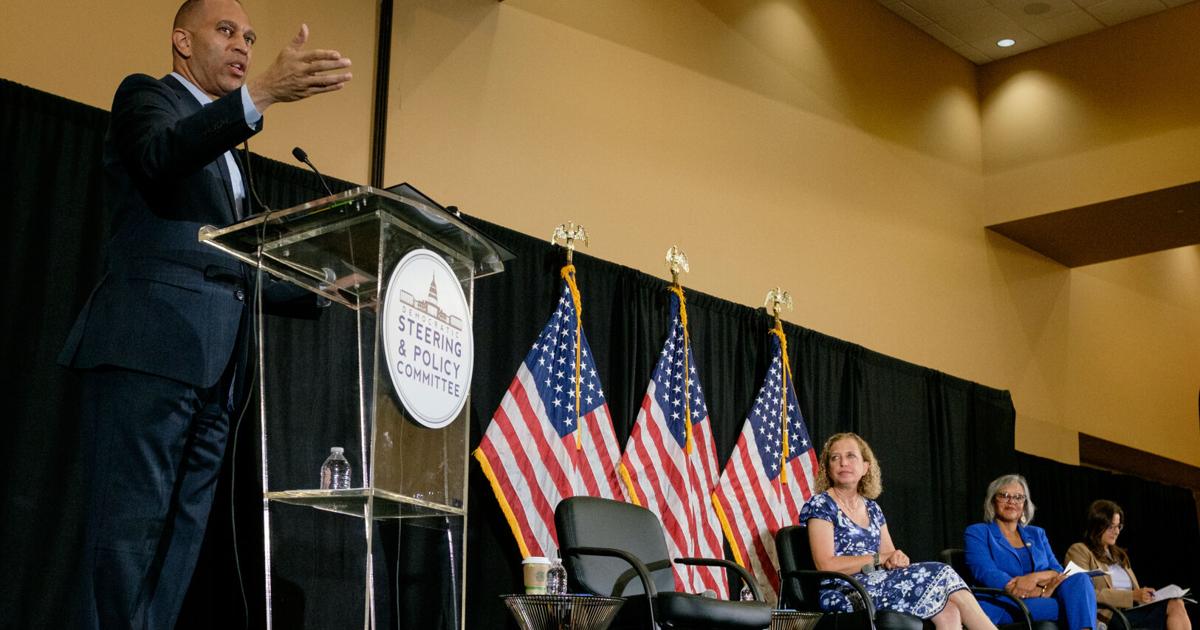Louisiana health officials said they will spend the next 18 months preparing for a new federal mandate that requires many adult Medicaid recipients to work, study or volunteer if they want to stay insured.
The new rules, part of President Donald Trump’s “Big Beautiful Bill,” will require Medicaid recipients ages 19 to 64 to work, study or volunteer at least 80 hours per month. People who are pregnant, disabled or caring for children under age 14 are exempt. The law requires states to check eligibility every six months, though states can perform the checks more frequently.
In Louisiana, people depend on Medicaid more than almost anywhere else in the country, with about one-third of the state enrolled. The state Health Department expects “very few current enrollees would lose eligibility,” according to a statement sent by spokesperson Emma Herrock.
But outside experts and Democratic lawmakers warn the requirement will cause paperwork errors and administrative delays that could push eligible residents off the rolls. According to an analysis released in April by the Urban Institute, roughly 116,000 to 132,000 could be pushed off Medicaid due to the work requirement. About 7 in 10 adults in Louisiana with Medicaid are working, according to the Kaiser Family Foundation.
How will system work?
The Louisiana Department of Health expects to receive more guidance from Secretary of the Department of Health and Human Services Robert F. Kennedy, Jr. by the end of 2025, said Herrock.
“We view the work requirements provisions as a means to grow our economy, while reinforcing the value of work and self-sufficiency,” Herrock said in a statement. “This also allows the program to preserve coverage for the most vulnerable populations while eliminating waste, reducing improper payments and combating fraudulent activity.”
To understand what a verification process might look like in Louisiana, look at what happened after the COVID-19 pandemic, when the federal government halted Medicaid coverage protections and required states to resume income eligibility checks, said Kevin Callison, a health economist at Tulane University. Though Medicaid is meant for people with low to moderate incomes, the usual yearly income checks were paused during the pandemic.
In a little over a year after the change, more than 650,000 people were removed from Louisiana’s Medicaid rolls, which had swelled to over 40% of the population during the pandemic. Of those, 7 in 10 lost coverage for procedural reasons, such as not submitting paperwork on time, rather than because they were found to be ineligible.
“When you add these burdens, it results in people losing coverage, even if they would be eligible,” Callison said.
Louisiana experimented with quarterly wage checks before the pandemic, a model that Callison says offers another glimpse at what could happen.
“About half of recipients were verified automatically, but the other half had to respond to paper requests in the mail,” he said. Roughly 80% of people who lost coverage did so because they didn’t return the forms, not because they were ineligible, he said.
Implementation timeline
U.S. Sen. Bill Cassidy, R-Baton Rouge, said the state would have time to put a system into place to keep people from losing coverage “just because of a bureaucratic snafu.”
“This doesn’t go into effect tomorrow,” Cassidy said. “There is a timeframe in which these systems are to be worked out.”
U.S. Senator Bill Cassidy points to member of the crowd and thank them for their involvement of the project during the groundbreaking ceremony for the Livingston Executive Airport in Satsuma on Thursday, October 3, 2024.
Javier Gallegos
The requirement begins Jan. 1, 2027. Still, some critics warn the burden of compliance will result in people going without health insurance.
“If you had to renew your driver’s license every six months, there’d be a whole lot of people driving without … one,” said U.S. Rep. Troy Carter, D-New Orleans.
Democratic lawmakers push back
Carter joined House Democratic Leader Hakeem Jeffries (D-Brooklyn) and other members of the House Democratic Steering and Policy Committee at CrescentCare in New Orleans on Friday, part of a tour aimed at drawing attention to health care cuts in what they call the “Big Ugly Bill” and warning of its potential impact on Medicaid recipients in Louisiana.
Representative Troy A. Carter, Sr. attends a groundbreaking ceremony for the NOLA Walk of Fame in front of Canal Place Shopping Center in New Orleans, Tuesday, Nov. 26, 2024. (Photo by Sophia Germer, The Times-Picayune)
STAFF PHOTO BY SOPHIA GERMER
At the event, Carter emphasized the importance of community-based outreach to help people stay enrolled, outlining efforts to partner with CrescentCare, nonprofits, and religious organizations. He pointed to pop-up curbside events held in his district to help residents complete paperwork.
“We will do that on steroids across the country,” he said.
“We’re going to launch an organizational effort that is community-based, unlike anything that the state or country has ever seen to try to make sure that as many people as possible can retain their Medicaid coverage,” Jeffries added.
